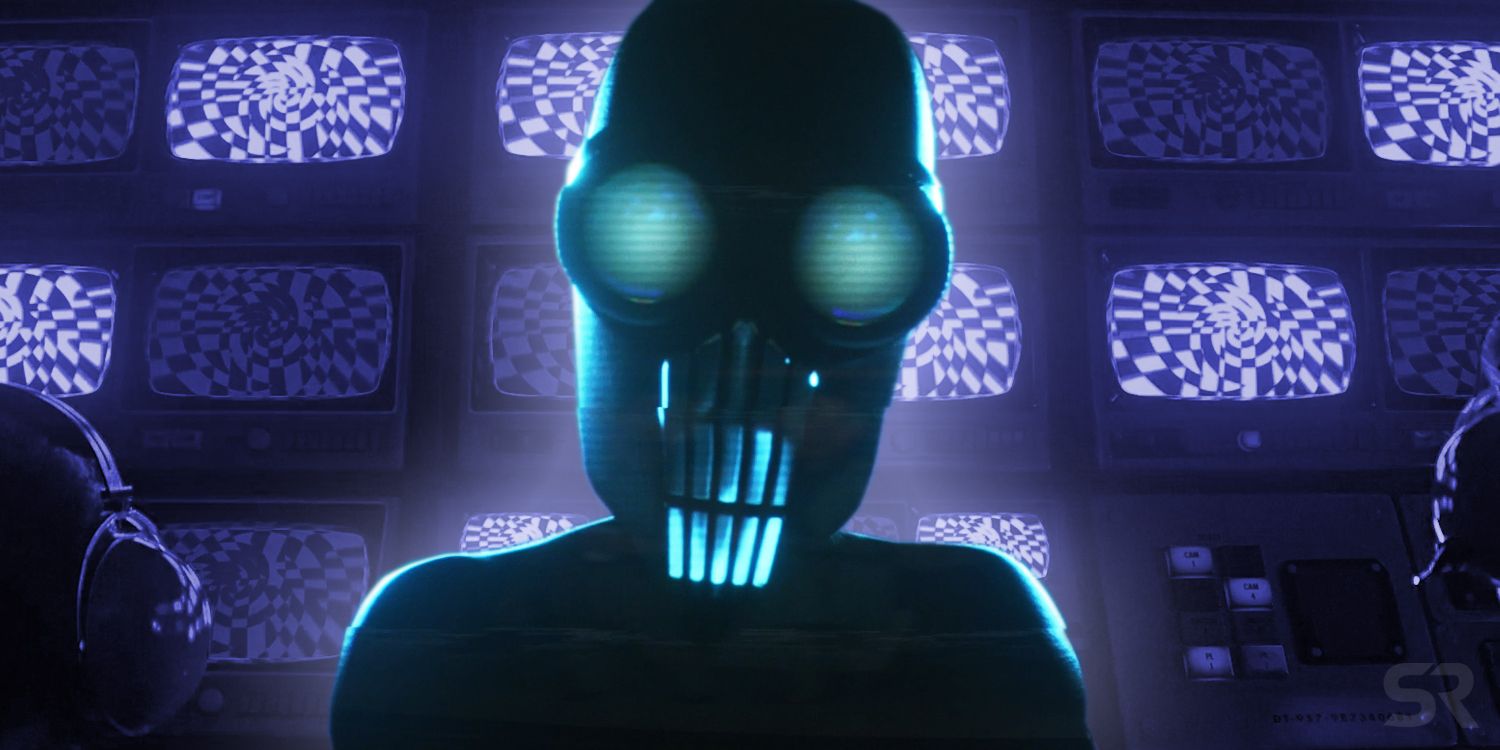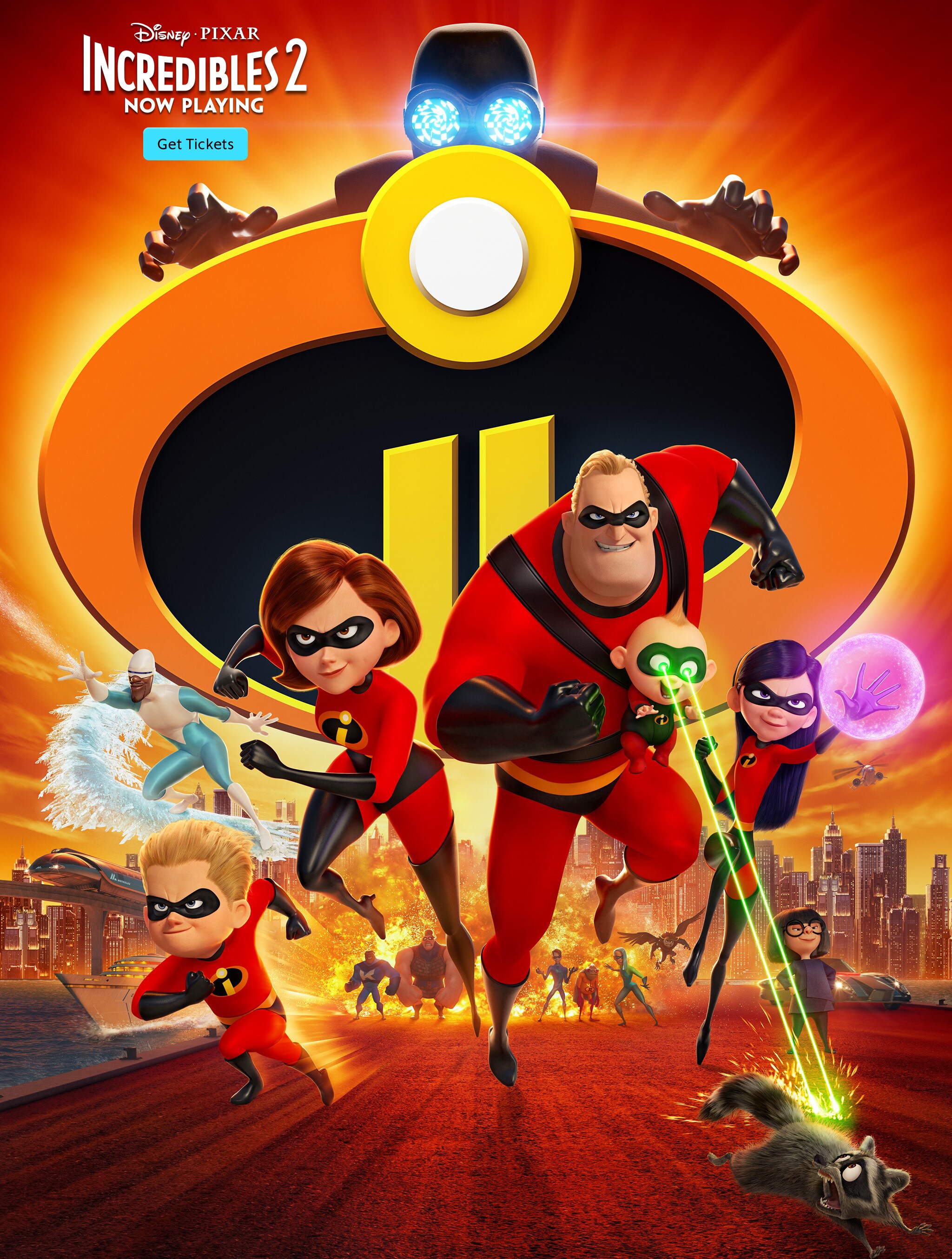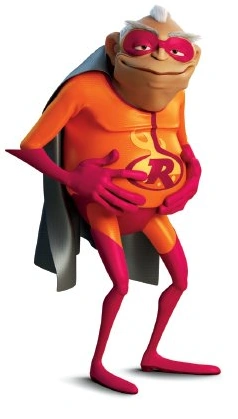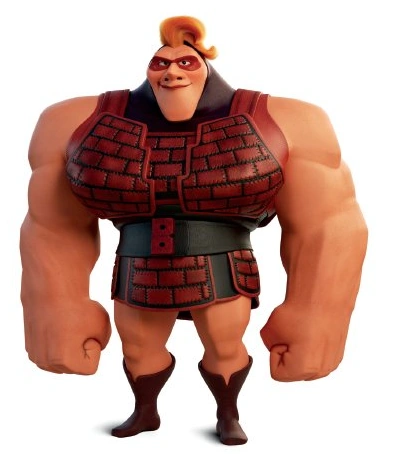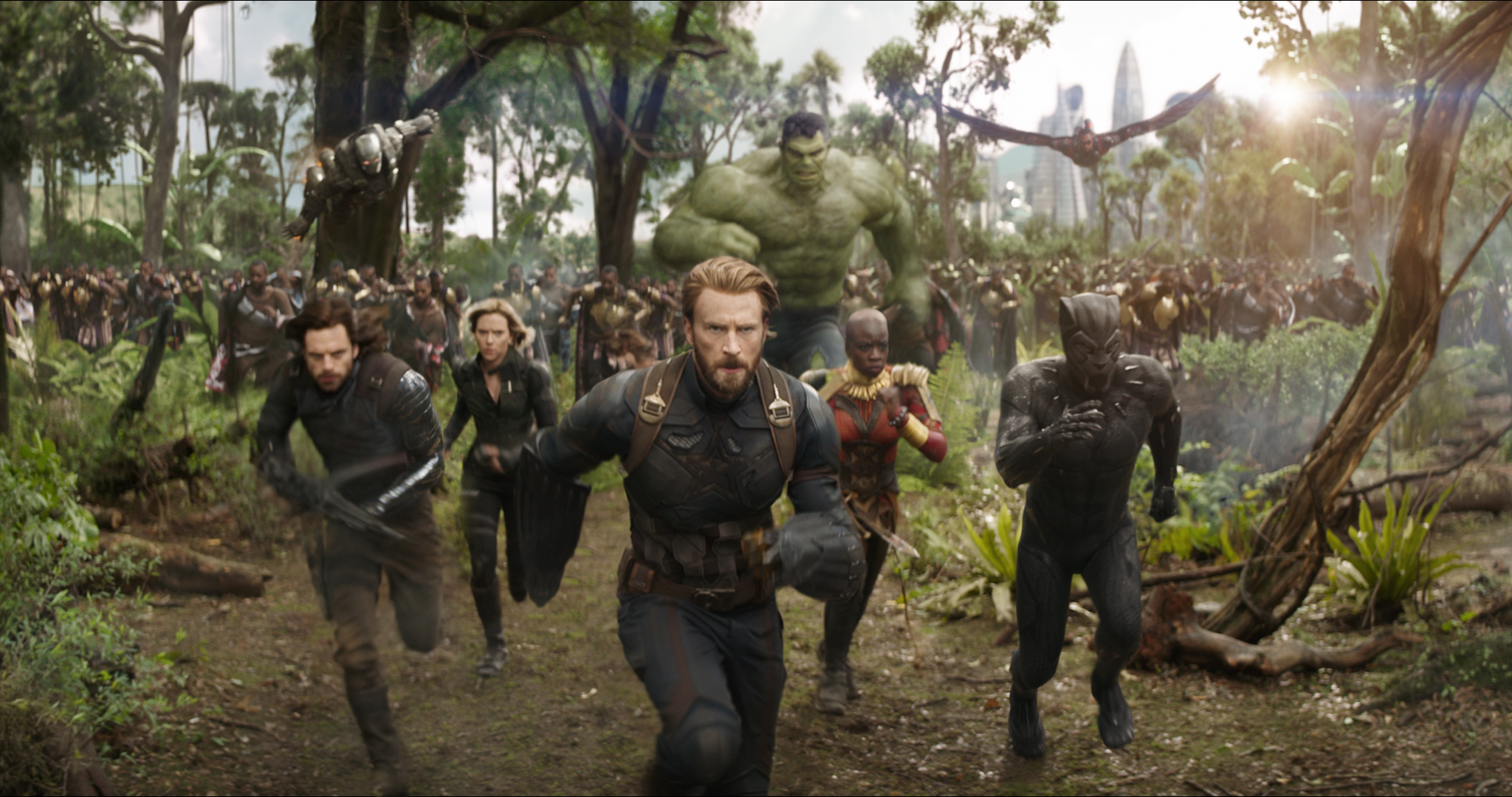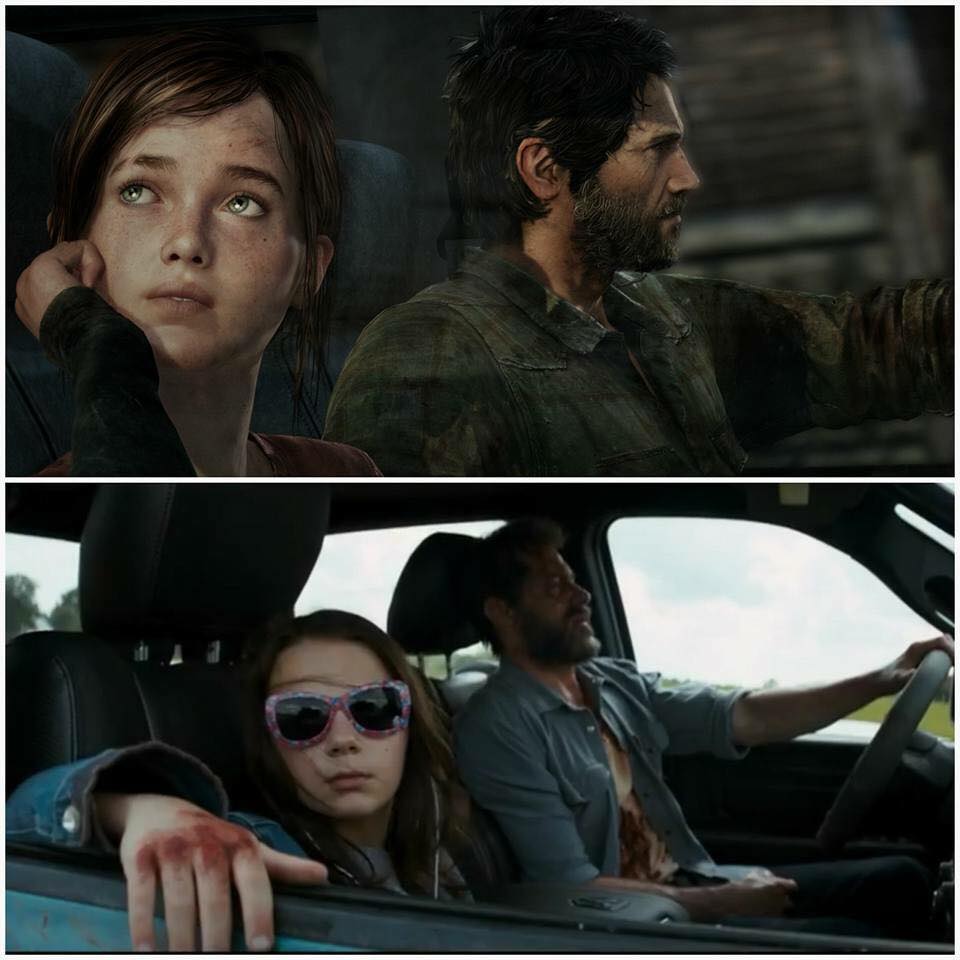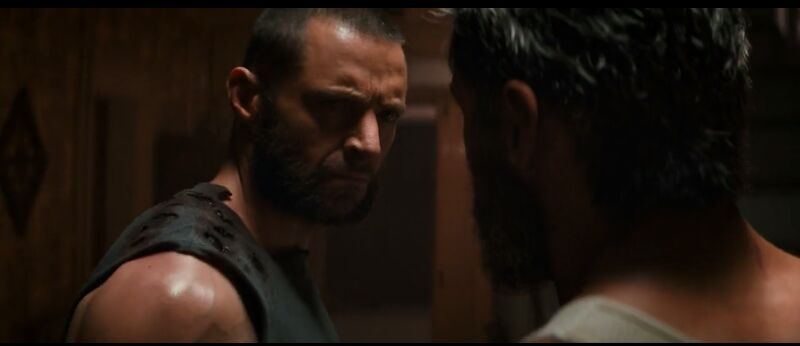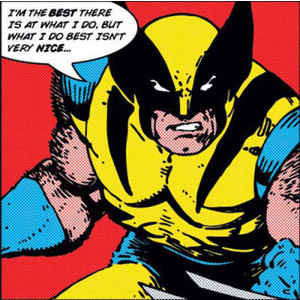So I've been composing my thoughts about DC's Wonder Woman for a couple months now. I went to a morning showing with a friend, not really knowing what to expect.
Man of Steel and
Batman v Superman: Dawn of Bad Titles really damaged my hopes for the DC Extended Universe, so much so that, when the reviews for
Suicide Squad came out, I couldn't work up the courage to go see it. So, when trailers for
Wonder Woman started coming out, I wound up lowering my expectations from "Gee, I hope that's good" to "Please don't suck too much".
Which means that, when I actually saw the movie, I was pleasantly surprised. But I'm also very hard to please (I prefer to think of it as having high standards), so I walked out of the theater not quite agreeing with those "Wonder Woman is the Best Superhero Movie Ever Made!!!" articles. Because, honestly, it's really not.
 |
Wait, no, Diana! I didn't mean it! I'm sorry! You still rock, I swear!
Don't take it personally!
|
Don't get me wrong, I really enjoyed
Wonder Woman. It's a good movie, and you should see it, if you haven't already. And it represents a flying leap forward (over a tall building, with a single bound...okay I know that's not a Wonder Woman reference, deal with it) for DC as a franchise. But, contrary to what various critics and review sites would tell you, it's not the greatest superhero movie ever made. It's got a lot of good things going for it, but it's got a lot of flaws too.
And, jut for the record, I actually really like Wonder Woman as a character, but I don't religiously follow the comics. I made up my mind to see this movie, just because I wanted to see Wonder Woman on the big screen and nothing (not even a bad movie) was going to stop me (though I did delay going to see it for a while out of fear). She's also not my favorite comic book character, by any means, but she is one that I have some strong opinions about, so there you go.
Tons of spoilers, by the way. I tried to avoid them when writing this, but for the most part I failed miserably. So be warned.
The Good
Chris Pine - If nothing else, Wonder Woman serves as an amazing vehicle for Chris Pine to showcase his talent. And boy does he give it his all. Between some frankly hilarious banter with Gal Gadot's Wonder Woman, his "Everyman" reactions to Diana and the Amazons, and that scene where he poses as a German officer, Chris Pine has proven that he was perfect for the role of Steve Trevor, and that he's almost criminally under-used as an actor.
If anything, Chris Pine probably steals the show, in more ways than one. Gal Gadot did a fine job, but Chris Pine somehow manages to outside her in pretty much every way, in her own movie. Even in the climax, I found the stuff with Steve Trevor much more compelling than the scenes with Diana.
 |
Regardless of how little sense this exchange makes in BvS,
I feel like Steve Trevor would say this if he could. |
David Thewlis - Seriously, the man is great in pretty much every role he takes on. I can't go much into his exact role in the movie without potentially spoiling some things (although it's not super hard to figure out, in my opinion), but he's great.
Robin Wright - Imagine Princess Buttercup. Now make her an immortal amazon. Now make her the greatest warrior on an island filled with amazons. Now make her the one who taught freaking Wonder Woman everything she knows. Nuff said.
The Banter - Apparently a bunch of the scenes between Steve and Diana were ad libbed, and they're all amazing. The relationship between Steve Trevor and Diana is really what makes this movie, in my opinion. And it's all hilarious and, at times, oddly profound or thought-provoking.
A Spectacular Lack of Brooding or Scowling - Seriously, in a franchise built by big beefy men who scowl all the time (why did Zack Snyder think Superman should brood again?), I don't think Diana broods or scowls even once. It's amazing how much more fun a superhero can be when they smile and actually try to do good things.
The Music - I don't remember a lot about the music (which is, surprisingly enough, a good thing in my book, since that means it also didn't offend me or ruin the scene), but the music I do remember was actually pretty good. I mean, the electric guitar in Wonder Woman's theme was probably a bit much, but I didn't mind. Hey, I enjoy A Knight's Tale, so I can't exactly throw the "anachronistic music" complaint around in good conscience.
Mankind and the Trenches - The movie definitely doesn't sugarcoat World War One, which is a good thing. And without going into R-rated territory, it does a very good job of demonstrating how terrible and gross and ugly the war really was. There's even a scene where Diana tries to get across No Man's Land, and even with her powers, she nearly gets killed doing it. Basically what I'm trying to say is the trench scene is really good and you should watch it.
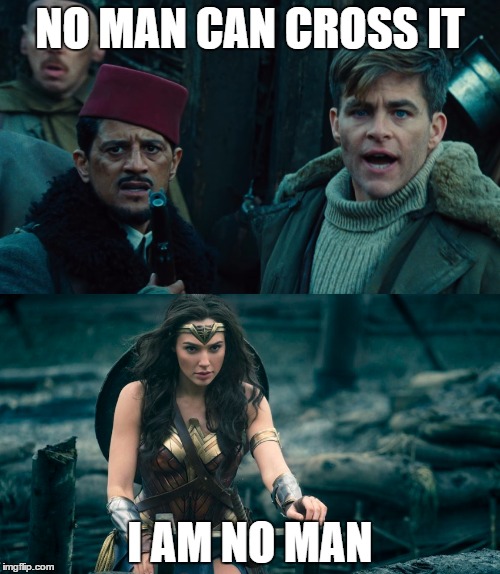 |
Okay, this exact exchange didn't happen, but bonus
points for the Tolkien reference anyway. |
The Bad
Historical Revisionism - It's not super rampant, but this movie plays pretty fast and loose with history. Especially in the way the various characters treat Diana. Some of the fish out of water scenes are amazing, but others...well, aren't so much based in fact. There's a scene where Steve Trevor is going into a room where a war council is being held, and Diana naively assumes she can just walk in. However, when she enters, the reason the various generals and diplomats get mad isn't that she's a stranger with a foreign accent with no security clearance, they get mad because...wait for it...she's a woman. Even when Steve Trevor makes the excuse that she's his secretary, they still are mad, because she's a woman. Now, there is pretty much no evidence that society would have functioned like this. If anything, the "she's my secretary" argument would have pretty much gotten rid of all their objections. And, more than likely, the generals would probably have been glad to have an attractive woman around.
There's also a scene where an Algerian character says he wanted to be an actor, but wasn't allowed to because of the color of his skin. Except, at the time, Algeria was controlled by the Ottoman Empire, one of the most powerful nations in the world. And, while there was certainly a small degree of prejudice against Muslim immigrants, it wasn't any worse than the kind faced by the Italians or the Irish, and both people groups did very well for themselves in a very short time. In fact, all indications seem to be that Ottoman immigrants got on very well in the West, and tended to be very well educated. And even if the color of his skin caused a problem, he could have just become an actor in, you know, the Ottoman Empire, where acting seems to have actually been a pretty big deal, due to the increasing westernization of the region at the time. So, his skin color is a complete nonissue here.
 |
| Whoa, Diana, check your privilege |
In one scene, too, a Native American--in an effort to show Diana that humans suck in general--says that "during the last war" Steve Trevor's people oppressed his. Ignoring all other objections, this movie is set in 1918. The "last war" no matter how you define it, had nothing to do with Native Americans. The last major wars were arguably the Philippine-American War, the Spanish-American War, and the Mexican Border War, which the screenwriters would have known after a simple Google search. Or, you know, a history class. But hey, they got some free white guilt in there, so...yay?
Closely related to this...
Which War Is This Anyway? - First, some background. Originally, Wonder Woman met Steve Trevor during World War 2 (because that's when the comics were written), and then went to fight Nazis. Slight problem with that. Marvel already did a movie about a superhuman, shield-bearing hero fighting Nazis (it even had a guy named Steve, played by a guy named Chris, but more on that later). So instead they move it to World War 1 instead. And, by and large, it was a good decision. But some elements of the script...well, let's just say not all the screenwriters seem to have been notified about the setting change. Given that this movie has a megalomaniac German officer trying to build a superweapon and being so obsessed with winning the war that he guns down his own people, I think it's safe to say the wars got a bit confused here. Especially when you hear Steve Trevor telling the Amazons about the war. Like, either this spy (who is later revealed to understand that both sides are wrong) really bought into the propaganda on this one, or he somehow is able to lie under the influence of the Lasso of Truth.
Also the Germans in this movie take slaves...for...some reason. And while forced labor camps certainly existed, they were generally out of service and certainly less common by the end of 1916. Again, this movie is set in 1918, so that wouldn't really have been a frequent occurrence by any means.
It's Captain America, But With a Woman This Time - Anyone who payed much attention to the trailers for Wonder Woman could see the similarities to Captain America: The First Avenger. But despite the fact that the whole reason they moved the movie to WW1 was to get away from Cap, there's actually a lot more similarities than even I thought there would be.
 |
Important Safety Information: If you're a guy named Chris playing an
American soldier named Steve in a superhero movie about fighting Germans
with a shield during a World War, do NOT get on a plane. It's for your
own good. Just. Say. No. |
To list a few (spoilers ahead):
- Both feature an American soldier named Steve
- Both feature a superhuman protagonist whose primary weapon is a shield
- The superhuman protagonist, for one reason or another, is not treated like everyone else
- The protagonist wants to fight in an ongoing conflict, but is told not to by a loved one
- An unrelated party comes in and believes in them when no one else will (Dr. Erskine/Antiope)
- This mentor figure dies at the end of the first act when the enemy encroaches on the protagonist's homeland
- The one who kills the mentor is German
- Both are set in the past, serving as prequels to their franchises
- Both were released just before their respective team-up movie
- The hero/heroine falls in love with a secret agent
- The two love interests discuss dancing together before they go on their final mission
- The protagonist is unfamiliar with dancing (at least with modern dancing)
- The hero forms a team to go behind enemy lines
- This team is established in a London pub
- The Germans are the antagonists
- On the protagonist's first trip to the front, people are captured by the Germans, and he/she has to disobey orders and go on a suicide mission to rescue them, when the army believes it's impossible
- This rescue is what establishes the protagonist as a hero, both to the characters and to the audience
- A German megalomaniac gets disgusted with Germany's current leadership and breaks away by eliminating a bunch of Germans so he can fight the war his own way
- The German megalomaniac has a evil scientist sidekick
- The German megalomaniac has super strength as a result of a drug created by German scientists
- The heroes start a minor operation to get access to the sidekick
- The good guys try to get information out of the sidekick, to work out what the Germans are planning
- The Germans have a superweapon, created by said sidekick, that needs to be stopped before it wins the war for the bad guys
 |
At least none of the Germans in Wonder Woman have cannons in their chests
or lasers in their eyes |
- Said superweapon is loaded onto a plane
- A character named Steve has to sacrifice his life to bring the plane down and save the world
- Steve and his love interest have a falling out before the climax
- The falling out is resolved just before Steve goes to sacrifice his life
- There is a revelation about the antagonist's identity, which shocks the protagonist (Johann Schmidt's face is a mask, the German general wasn't Ares)
- Speaking of which, both movies have German villains with somehow deformed faces (Red Skull, Dr. Poison)
- Both movies feature a fight scene between a superpowered German and the protagonist
- Even though they are set in the past, both movies are book-ended by scenes set in the present
- The final scene involves the protagonist wistfully thinking about the love they were never able to have
- Both final scenes involve the protagonist communicating with the person initiating the superhero team-up (Nick Fury, Bruce Wayne)
See where I'm going with this?
You do? Cool, we can move on then.
The Definitely-Not-Howling-Commandos - I have no idea if these guys have a name, but...yeah. Anyway, initially this was going to be in the "good" column, because, with the exception of a few missteps noted above, these guys are actually done pretty well. They all get a scene discussing some flaw or fear they have, and how it ties into their backstory. It's a bit ham-fisted, but it sets up a really cool arc for these guys.
An arc that never happens. The sniper who can't shoot is suddenly able to shoot with no explanation or character development. The actor who wasn't allowed to act is...um...there while Chris Pine out-acts him. The Native American scout...er...scouts...I guess. It just kind of...ends. And given the amount of setup involved in these guys, that's a major waste.
The Amazons - By the time this movie came out, we were able to see Jeremy Renner as Hawkeye pull off crazy archery stunts for five years. You can also throw the show
Arrow in the mix. Comparatively speaking, the Amazons, the greatest warriors in the world, are kind of lame. You heard me. Compared to Hawkeye. Most of their fighting is obvious wire-work that would give pause to even the director of a Chinese action move. During the one major amazon fight (plus the training session) the amazons don't really do anything super impressive that isn't either CG or clearly on wires. The way the movie sets them up, I was honestly expecting an island of Black Widows that could shoot as well as Hawkeye, and the amazons just felt a little...underwhelming.
Diana's Powers - So, for those of you who have seen
Wonder Woman, I have a question. Does Diana have superpowers at the beginning of the film? And, if not, when do her powers develop? Does this surprise her? See, the movie doesn't really make these things clear. When she's training with Antiope, she seems to be just as strong as the rest of the amazons, and they seem to just have regular human strength. Then we get a shot of her expelling energy (somehow) from her gauntlets, but she seems to have no idea what that was. However, this is literally never referenced again, and aside from a brief pause, none of the amazons seem to think this is worthy of dwelling on. She doesn't exhibit much in the way of superpowers during the beach fight between the amazons and the Germans, but at one point she gets injured and says that she heals fast, much to the amazement of her freaking doctor on Themyscira. (Seriously? The doctor doesn't already know that she heals fast?) Then, in one scene, her entire plan revolves around a superpowered jump that no human could possibly make. After the jump, she has to literally punch holes in a tower to, you know, not fall to her death. This all seems to be part of her plan, but she a) has not shown any indication of super strength up until now, and b) seems slightly surprised that she, in fact, did not splat against the side of the tower. From this point on, she seems to develop (and fully understand) new powers as the screenplay requires, without ever batting an eye.
So I guess she must have already had these powers then. Otherwise she'd have some sort of learning curve, surely. But then that kind of damages the "train her 15 times harder than anyone has been trained before" moment. Because Diana is strong enough to lift a tank and fast enough to block a bullet with her wrists. That's way more than 15 times stronger and faster than what we see from the amazons. So, if this is true, Diana got by on pure talent instead of effort. But if she somehow didn't know about her powers, or they hadn't developed yet, why do they all manifest so late in her life? And why does she seem to instantly know what to do with them?
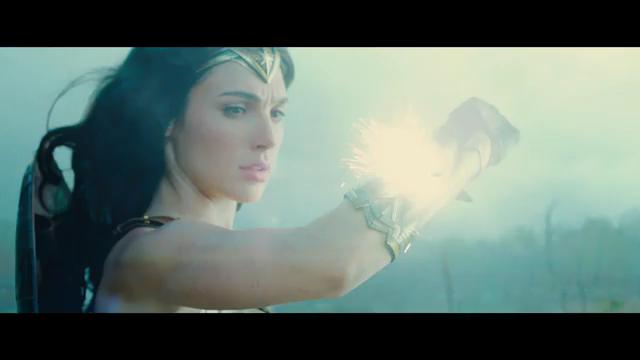 |
Even though she's already blocked at least one bullet, she looks vaguely
confused at what's happening here. By the way, other
than a knowing smirk, this is pretty much the only expression
Gal Gadot is going to have until the climax of the movie |
The biggest offender here is the climax, which I'll go more into later, but she seems to pull new powers out of a hat in this scene. The jury's still out on whether we actually see her fly at the end of the movie, or whether she's just jumping really, really far. But we also see her apparently disintegrating all of the weapons Ares sends flying at her, as well as absorbing his lightning powers (also, Ares has lightning powers for some reason) and shooting them back with enough force to vaporize the literal god of war.
Now, maybe that last one is supposed to be like the burst of force that came from her gauntlets at the beginning, but, even so, Diana apparently mastered this power very, very quickly, with no apparent effort or practice. And she doesn't seem that surprised when she turns out to be more powerful than a several-thousand-year-old Greek deity she's been taught to fear all her life.
Diana Herself - This is the controversial one. I know, I know. But honestly, while Wonder Woman's never really been one of my all-time favorite superheroes (sorry, Diana, Cap and Spider-Man are just too darn cool), there's still always been something really cool about her that's stuck with me. I think it's just how selfless and calm she is, so much so that a recent arc in the comics that has her freaking out (for admittedly understandable reasons) is physically painful to read. It just...doesn't feel right to see Diana like that. At the same time, Diana is also extraordinarily kind, almost the mother/big sister to everyone she meets. And, like Superman, Diana focuses on trying to save people, even those trying to kill her. She's compassionate and caring, but commits to fighting only when she sees no alternative. She's, in effect, the ultimate warrior and the ultimate diplomat combined into one being, earning her the title "The Goddess of Love and War".
Movie Diana however, well...we see a little of that, but only a little. She seems to express concern for the other members of their little adventuring party, and when she hears about an injustice she's always leading the charge to fix it. But there are a few problems here. See, Diana believes that World War 1 is the doing of Ares, and that killing Ares will stop the war. In fact, she thinks it'll stop all war. More than a little naive, but she's lived a sheltered life, so there you go. But, when she hears about a German general that Steve Trevor's pursuing, she immediately (and with practically no evidence) is convinced that he is Ares and that she has to kill him by any means necessary. Seriously, she even hunts him down and kills him.
That feels really, really wrong to me. Sure, in other scenes, Diana fights in the war, killing Germans. But in those, she fought to save someone directly impacted by the enemy (killing the German soldiers to save the village, killing the soldiers invading Themyscira, fighting the spies trying to kill Steve). Here, she's basically willing to assassinate a guy she
thinks might be Ares. She doesn't try to talk him down. She doesn't try to reason with him or show him the light. She just straight up tries to murder the guy. And Themyscira hasn't declared war on Germany, by the way, so yeah...
Fortunately, the general has convenient super powers, for...reasons...and is able to almost hold his own, until Diana stabs him to death. It just...felt...off. Like Superman snapping Zod's neck levels of "off".
 |
Yeah the placement of that sword causes...erm...logistical
issues...also that scene made me think of this gag from
Scott Pilgrim Vol. 7 |
Add to this Diana's sheer arrogance. See, in the comics, Diana is generally portrayed as loving and kind, but needing help to navigate the weirdness that is our world. She makes mistakes, she does stupid things that others don't understand, and that's a lot of the reason she needs Steve. Sometimes her viewpoints are right, and sometimes they're wrong. And she recognizes that. Sort of like
Thor, where Thor certainly sees the easiest solution a few times, but by and large, his expectation that he can do whatever he wants just because he's the God of Thunder is treated as a character flaw, one that he has to grow out of.
Diana, on the other hand, doesn't have to. She isn't given any reason to. She goes out into our world and immediately just assumes she runs it. Whenever Steve tells her not to do something because it would cause him problems, she waits for him to turn his back and does it anyway, causing Steve problems that he then has to fix. It's largely played for laughs, but it doesn't say great things about this version of Diana. Steve tells her that soldiers, professional soldiers mind you, have been stuck in the trenches for years and haven't gained so much as a foot of ground, but Diana just steps out into No Man's Land, without having any idea what she's up against, assuming that she'll be able to do it by herself.
By the way, she isn't able to clear No Man's Land on her own. It takes everyone else charging with her to win the day, after she gets pinned down. Even when she's meeting Steve's team, she displays a decent level of arrogance, attempting to "one-up" their language expert by speaking to him in all the languages she magically learned, and then resorts to Themysciran to stump him. What does Diana really get out of this, other than proving she's better than someone she just met? I mean, it's a funny scene, but again it doesn't say very good things about Diana as a person.
This isn't exactly helped by Gal Gadot's acting style. Now I'm not saying she's a bad actress, she's actually really good, when she has a director who lets her run wild. But one of the reasons she was so cool in
Batman v Superman: Martha of Justice was because we saw so little of her, but when we did see her, she looked confident, mysterious, and dangerous. And now, when she has a whole movie to work with, she spends the whole time (minus the final scene and one freak-out) looking...confident, mysterious, and dangerous. She mostly just smirks, looks confused, and shouts in battle. And that's mostly it until the climax, when Jenkins finally seems comfortable enough to let Gal Gadot do her thing.
 |
Earlier I showed one of Diana's main facial expressions.
This is the other one. |
And while we see Diana as someone who genuinely does want to help and protect people, that gets reversed at the end of the movie. See, she only wanted to protect people because she believed that people were basically good, and when she sees that they're not, she basically throws in the towel and says "who cares?" She does have something of an existential crisis, not because she killed a bunch of people or just assassinated the wrong guy, but because humans suck. Never does she go "Oh no! What have I done?" about any of this. She instead blames Steve (and humanity) and walks off, declaring herself above humanity.
Nice.
Honestly, one of the main reasons I like the No Man's Land scene, in spite of some of its issues, is that it's really the only time we see Diana being an actual hero, putting the good of others over her mission. Other than that scene, the most heroic character in the movie is actually Steve Trevor.
In fact, at the very, very end of the movie, it's Steve that makes the ultimate sacrifice to save the world, not Diana. Diana doesn't even try to stop him. It's Steve who believes that he
has to save everyone he can, good or evil, while Diana--when she sees human nature for what it is--is content to let them rot. It's Steve that assembles the team, Steve that creates the plans, and Steve that leads the team. Diana largely is the muscle and, towards the end, the one that screws up Steve's plans by getting in the way. And neither she, nor the screenwriter, ever seem to realize that Diana's been doing this.
But, in all fairness, at the end, it's Steve's ideology that allows Diana to defeat Ares. She adopts it as her own here, but that philosophy--the belief that we should try to save people, even from themselves, until there is no other alternative--is what makes Wonder Woman...Wonder Woman. It's not her powers or how tough she is or how she's a strong independent woman who don't need no man, Wonder Woman is defined by her belief that people are worth saving, and her willingness to act on, and die for, that belief.
So, in a lot of ways, Diana isn't Wonder Woman until the last ten minutes of the movie, because she doesn't hold to those beliefs. Sure, this is an origin story, but I wanted to see this movie to see Wonder Woman on the big screen. Not someone who might be Wonder Woman in the last ten minutes. Just as an example, no one wants to sit through a Spider-Man movie where Peter Parker's a selfish jerk all the way until the end, just because it's implied he'll be better in a later movie.
 |
...
Hmm, that's kinda awkward. |
It's Steve that believes in saving people, and those beliefs are a lot of the reason why Steve pretty continuously outshines Diana, in spite of all the butt she gets to kick. Speaking of which...
The Action Scenes - Okay, this section won't be as long as the last one, I swear. But, while the No Man's Land scene in particular is really good, Patty Jenkins really betrays her inexperience with fast-paced action in this movie. First off, she relies on slow-motion way too much, but she also doesn't use slow-motion well. In most action movies, slow-motion is either used to give you a better view of something you never would have been able to see in real-time, or to extend a brief moment of awesomeness. Jenkins pretty much exclusively opts for the latter, and she uses it a
lot, mostly when Diana is charging into battle. But she doesn't go into slow-motion when Diana is landing a blow, instead, she slows things down when Diana is
about to land a blow, speeding up before the punch lands. Sure it looks cool the first time, but it starts to get old really quickly.
On top of that, there are some editing problems too. There's a scene where a bunch of baddies attack Steve and Diana, and the action is cut very strangely. For example, there's a moment where a bad guy has grabbed one of our heroes from behind, his victim (I believe it was Diana) struggling to break free. We cut to a different angle and they already have broken free. There's a lot of moments like this, where the actual blow isn't actually shown on screen, but the lead-up and the fallout are. Which made a lot of the action fall flat for me, since it's hard to get a sense of how strong Diana is when you rarely see one of her punches land.
Add to this the obvious wire-work by the amazons. And speaking of which, Diana's training with Antiope could have been much more convincing. As I was watching her train in the theaters, it struck me that Gal Gadot was clearly holding back, pulling her punches to avoid hurting Robin Wright. Maybe that was a deliberate choice, but still, it reminded me that these were both actresses, not real amazons, and that's never a good thing.
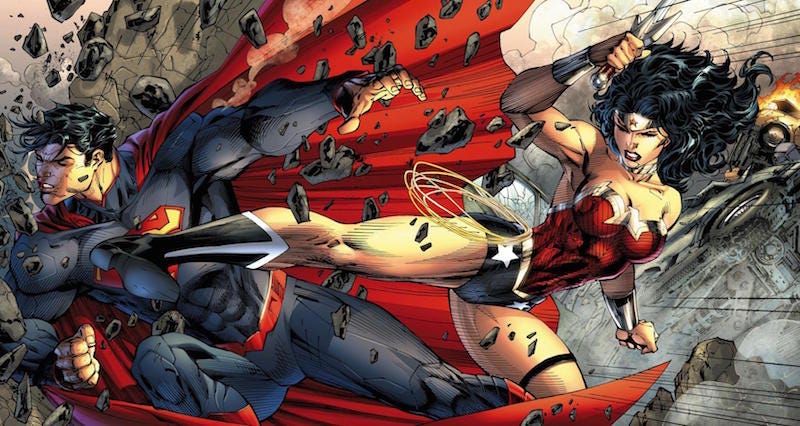 |
See, this Wonder Woman's attacks look like they hurt.
A lot.
|
Then there's the finale, which is basically entirely computer generated (and it shows) except for Diana. I'm not sure if it's the direction or Gal Gadot's acting, but she doesn't seem to be giving it her all here either, like she was feeling self-conscious at the thought of fighting something that wasn't actually there. Both the acting and the CGI make it almost painfully obvious that this is on a green screen.
Hippolyta and the God Killer - Hippolyta is the world's worst mother. Not only that, but she seems to do a pretty bad job of being a queen, too, from what we're shown. Her job, as queen, is to protect the island from Ares. Her daughter, Diana, is a demigod literally made for the purpose of defeating Ares. One would think, since the amazons all assume that, at some point, Ares will attack them, the best way to protect Diana would be to train her, to make her the most capable warrior in Themyscira.
But Hippolyta doesn't let her be trained for years. So Antiope has to train her behind Hippolyta's back. And when Hippolyta discovers that her express orders have been disobeyed? She shrugs and tells them to go ahead. Nice leadership skills.
Then, knowing full well that Diana is destined to fight Ares, Hippolyta tells Diana a story about the God Killer being a sword. So Diana naturally assumes that using that sword will kill Ares. Turns out, it's just a sword, and that assumption very nearly gets Diana killed. Which was...completely predictable.
To top it all off, one of the amazons even asks Hippolyta if they should tell Diana, and she says no, because "the more she knows, the sooner he will find her." Assuming that there isn't some
other secret about Diana's conception, and some other being trying to hunt her down, this is probably referring to Ares, and that's most likely how we're supposed to take it. But if she doesn't know she's the God Killer, how is she supposed to fight Ares? And if it's some other villain, how is she supposed to fight this mystery man in the future?
What's she supposed to do, love them to death?
Wait, hold on...
The Climax - The climax of this movie is kind of a mess. Maybe there's just something I'm missing, but I had a lot of questions, and a lot of problems. I've already talked about how Diana pulls a bunch of powers out of a hat to easily defeat Ares, but that's not the only problem.
She doesn't even try to save Steve. Steve is, of course, trying to save the world from the massive gas attack the Germans are launching. He runs up to Diana, tells her he loves her, and runs across the tarmac to get to the plane. Diana pretty much just sits there (and, granted, she just got hit pretty hard), but even when Steve takes off, she just lets him go, knowing full well what he's going to do. She doesn't try to chase him, jump on the plane, or anything.
Now maybe that's because she was too busy fighting Ares, but that's the other thing about this scene. Ares doesn't really have a master plan. He's just trying to kill Diana because she's there, and he doesn't even seem to be in a particular rush, given that he's content to sit patiently by while Steve confesses his love to Diana on the battlefield. But there's not any master plan of the war god's that she needs to stop right now. It's basically just fighting for her own life, while Steve is fighting to save the world.
It's also revealed that Ares wasn't behind World War 1 at all, he was just nudging a few things here and there to make it slightly more devastating. Otherwise, he was just sitting back and watching the show, because humans would do it all to themselves, with or without him. Steve, at one point, pretty much says the same thing, that humans will war upon themselves even without any intervention from the outside. Diana accepting that she was wrong, and still choosing to fight for humanity anyway (although, once again, Ares doesn't have a master plan here, so she's basically just fighting him for herself) should have been a pivotal moment in Diana's journey towards becoming Wonder Woman. Instead, she easily defeats Ares with the power of love (I'm only exaggerating a little) and all the Germans--who just saw this random woman burst into their compound, assassinate their leader, and blow up a bunch of their buildings--just kind of hug each other and sink to their knees gratefully. So it really was just supposed to be Ares the whole time, I guess?
I don't know, this movie has some commitment issues.
Warner Bros. - A lot of the biggest problems in this movie arguably come from the DC Extended Universe model. For example, it's got a muted color palette, a heavy dependence on slow-motion, a protagonist who doesn't have much expression, and a final battle that's such a CGI-laden slugfest (big on spectacle, low on stakes) that nothing you see has any weight to it, because there's nothing real to latch onto. Buildings get destroyed, but they're buildings we just saw for the first time about five minutes ago, and the cost of all this destruction, both in monetary value and in human lives, is never really made clear for the audience. All of that is a Zack Snyder staple.
And speaking of Zack Snyder staples,
Wonder Woman even has completely un-subtle Jesus imagery.
 |
She even puts one knee forward, to raise one foot slightly above
the other. DC really likes this pose, don't they? |
But yeah, you could definitely tell Zack Snyder was still the show runner when
Wonder Woman was made. It shows in a lot of ways.
The Indifferent
The Mythology - This one could have gone into either column. The mythology at the beginning of the movie isn't Greek mythology. It's DC's bastardized version of it, and then the movies take a lot of liberties with DC's mythology, which took a lot of liberties of its own. The result is a little bit wonky if you're at all into Greek myth. I was familiar enough with the comic mythology to not really mind too much, but my friend next to me actually started laughing part way through the prologue section. Do with that what you will.
The CGI - It's not great. Not particularly terrible either. I'd say it reminds me of CGI from the mid-to-late 2000s. Each individual shot is probably on par with a single CGI shot from, say, Captain America: The First Avenger, but Jenkins (and DC in particular) didn't quite have the same level of restraint. Where the first Cap movie would have had one or two CG shots, Wonder Woman will have 50 shots that last twice as long. The CGI looks old, somewhat fake, and outdated, and there's a lot of it to go around. But that's not a huge deal for me, since that's been pretty par for the course for DC and Warner Bros. these days. I just kind of expected it. And given the whole Steppenwolf thing in Justice League, honestly things could have been worse.
Ares - Given that DC almost immediately backpedals on Ares's big reveal that he actually...hasn't been...doing much...it's kind of hard to get a read on Ares as a character. He apparently killed all the gods and wants to kill Diana (after the cliche "Join me, and together we will rule the galaxy" speech) now that he knows she's a god too. And he may or may not have influenced the human race. Or, on the other hand, he might have just sat on his rear all day occasionally making helpful suggestions. In fact, the first time we see him, he's trying to broker the armistice (the terms of which, historically, did actually bring about World War 2, but I don't think the writers thought it through that much) and bring about peace. In fact he helps Diana out a fair amount, for...reasons, I guess. I don't know. I like David Thewlis a lot, even though, when it came to the actual Ares scenes, I felt like he might not have been the right choice. He was perfect as Sir Patrick though, and all of his non-powered-up scenes were pretty great. But, despite all the lore behind the guy, it was hard to really see him as particularly threatening.
Conclusion
You've probably noticed by now that the "bad" section is about a hundred times longer than the "good" section. But, in spite of all that, I really enjoyed seeing Wonder Woman. Chris Pine really makes the movie, and his chemistry with Gal Gadot makes every scene with them just work. I would have honestly paid to see a movie of just the two of them talking for two hours, and I would have enjoyed every second of it.
The stuff that does work works really well. The stuff that doesn't work, well...let's just not focus on that stuff too much. All of this is to say that, while Wonder Woman is by no means "the greatest superhero movie ever made" or even in the top ten, it's still a really good movie and a really fun experience. You don't need to work to find someone talking about why Wonder Woman is great. But no one's really talking about the stuff that needed work, which is a shame. Because if no one recognizes the areas that didn't work, the sequel will be mired in the same problems. But if Patty Jenkins realizes the problems of this movie, and works to remedy them in the sequel, then Wonder Woman 2 will be awesome.
And now, I leave you with this:
 |
Oh critics, they forgot about the kickbutt
women of the 90s so fast. |
Let me know in the comments if you have any thoughts, or if you think I deserve to be horribly mangled for being as wrong about this movie as I probably am. Honestly, this is my opinion, and I'm really interested to see how it matches up with other people's thoughts.
